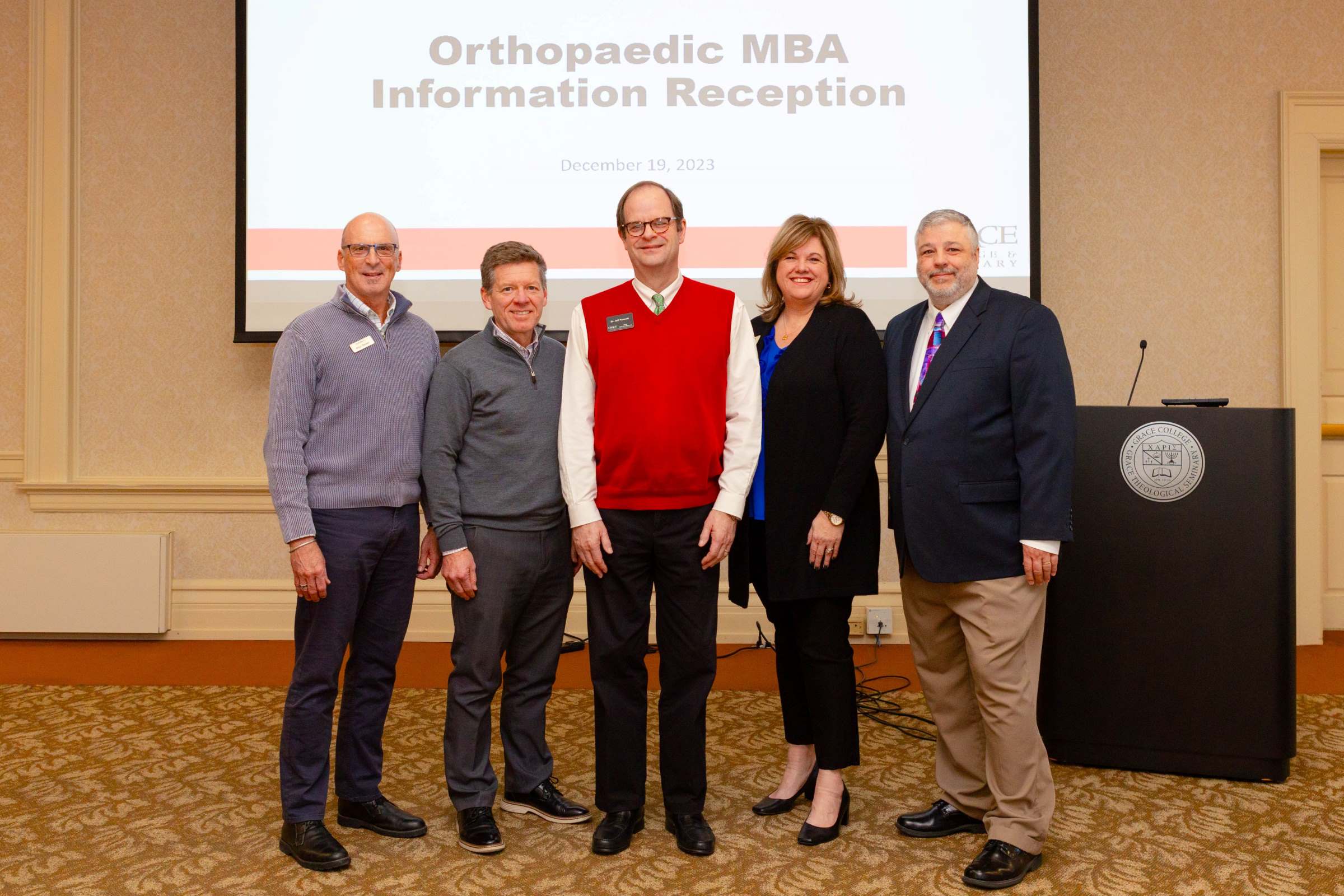December 5, 2022
Lasting Change: How EMDR Techniques Can Provide Deep Healing
Tagged With Counseling Masters Programs

There are many behavioral therapy techniques in psychotherapy that can help people heal from emotional distress. Great counselors are lifelong learners, meaning that they are continuously studying new strategies that are best for each individual client’s needs. What may work for one person may not be most effective for another. But one strategy that has proven effective for many over the years is EMDR. When Clinical Mental Health Counseling students graduate from Grace College, they graduate with the resources they need to continue their training in various behavioral therapy techniques. Many Grace graduates go on to become licensed in EMDR techniques so that they can continue to serve their clients best.
What is EMDR?
EMDR stands for Eye Movement Desensitization and Reprocessing. EMDR is one of the more widely talked about behavioral therapy techniques because it provides healing for those suffering from emotional distress after a difficult experience.
Picture the mind like your hand. If your hand was injured, your cells would get to work to heal your hand. However, if you bump that injury, your healing would slow down and you would feel pain. According to Corner Canyon Health Centers, a mental health treatment center for first-rate recovery treatment programs, this is how your emotional health works as well. The mind is working toward mental health, but obstacles throughout life can stunt that growth. Until those obstacles are removed, the healing cannot continue properly. EMDR techniques are designed to remove those obstacles so that mental health growth can continue. The goal of EMDR therapy is to produce rapid and effective change while the client maintains equilibrium during and between sessions.
Is EMDR beneficial?
Studies done by columns such as Scientific American have shown that EMDR techniques provide benefits that once took years to reach. For adults with a one-time traumatic experience, the process could take under five hours! EMDR is becoming one of the leading behavioral therapy techniques for trauma around the world.
In Warsaw, Indiana, just down the road from Grace College, EMDR is making an impact on the community. Sharon Miley, licensed marriage and family therapist at LifeWorks Counseling & Consulting, is seeing the impact of EMDR techniques first-hand with her clients.
“The emotional healing is happening quicker and lasting longer than traditional behavioral therapy techniques,” she shares. “It is empowering for my clients. Not only are they seeing the results, but their loved ones are reporting amazing progress they observe as well. People are asking for more intensive sessions because they are seeing the growth!”
It’s important to remember that EMDR does not change the clients’ memories, it simply helps them identify the meaning and emotional responses to it.
How does EMDR work?
EMDR techniques involve a process that takes input from both the therapist and client. The Corner Canyon Health Centers breaks this down into eight key phases. The first is History and Treatment Planning, where the therapist and client choose a targeted memory or situation for the EMDR processing. During this stage, the therapist will also assess whether or not the client is ready for the EMDR plan.
“I call this step mind-mapping,” shares Miley. “Because it is all about identifying the target for the therapy. EMDR has a past, present, and future focus. We start with the here and now. What is causing trouble at this time of your life? Once they identify that, we can start distinguishing times, memories, people, and places that bring about these troubles.”
Phase two is the Preparation phase. This is when the therapist teaches the client several ways to handle stress and emotional trauma. This phase is useful for building trust between the therapist and the client.
“I love that EMDR techniques put an emphasis on resourcing,” Miley says. “Clients get tools for responding, relaxing, and thinking of their brain as a place with ‘mental containers’ to help organize emotions, thoughts, and memories.”
Phases three through six include Assessment, Desensitization, Installation, and Body Scan. The goal is for the client to identify a vivid visual image connected to the targeted memory, a negative belief about self, and related emotions. In addition, the client finds a positive belief. The client will focus on these things while taps, sounds, or eye movements engage the EMDR process. The client will then report what comes to mind, which helps the therapist focus on the next component. choose the next focus of attention.
Phase seven is called Closure. This is when the client is instructed to document any related activity throughout the week. This leads to the final stage: Reevaluation. Together, the therapist and client examine the results of the process to decide if the therapy is complete or if the process should begin again with a new targeted trauma.

Who is a good candidate for EMDR?
According to Ipseity Counseling, a counseling center based in Denver, Colorado, EMDR techniques are most commonly used to treat PTSD and trauma-related problems. However, EMDR is expanding as a useful tool for treating phobias, depression, and anxiety.
Because EMDR therapy relies on the mind’s natural processing abilities, it is important that candidates are able to process thoughts and feelings. Some people may need a bit more preparation before being ready to effectively engage in EMDR techniques.
Therapists who are certified in EMDR will be able to decide if a client is a good candidate for EMDR. EMDRIA, a leading resource for EMDR, states that children and adults of all ages may benefit if they are struggling from chronic illness, dissociative disorders, eating disorders, grief, performance anxiety, PTSD, sleep disturbance, addiction, or abuse. Clearly, EMDR can impact a wide variety of clients.
How can counselors learn more about EMDR?
Students can expect to be introduced to EMDR during their time in Grace’s Masters in Counseling Program. Dr. Jenny Davis-Preffer, professor of graduate counseling, highlights EMDR and other important behavioral therapy techniques in her class entitled Advanced Clinical Practices and Treatments. Davis-Preffer has seen EMDR to be successful in her own private practice, so she believes all students should have the opportunity to learn about it.
Counseling students can be trained in EMDR through an EMDRIA-approved program but cannot be certified in EMDR until they are licensed. If a graduate student would like to pursue EMDR training, they will need to submit documentation to verify eligibility. EMDRIA has standards for training that includes CEU’s, consultation, video evidence of practice, and more. Therapists agree that the time and effort is well worth the outcome!
Because counselors are life-long learners, many resources exist for counselors to continue to further their knowledge about EMDR techniques. Miley recommends joining online therapist communities to ask questions about behavioral therapy techniques and learn from peers.
“Be careful, of course, to make sure the communities you plug into are positive,” warns Miley. “Sometimes online communities become a place to complain, which quickly turns toxic.”
Miley has enjoyed following the hashtag “#therapistsconnect” to learn more about current terminology and get their feedback. One of the best places to learn, however, is among coworkers. Miley and her colleagues have an open door policy when they are not with clients, and according to her, it has been incredibly helpful.
Who should be trained in EMDR?
Is the time and effort to pursue extra training in EMDR worth it? Miley says,“Definitely!”
“Since using EMDR techniques, I have gotten to witness firsthand the powerful healing from horrible trauma responses,” she says. “I had a client who literally danced out of my office, and it’s incredible that I get paid to see that happen! It’s an honor to help facilitate that type of healing.”
If you have a passion for growing your knowledge in a variety of behavioral therapy techniques and a desire to help others, the next step may be online education! Learn more about Master of Clinical Mental Health Counseling with Grace College today!


